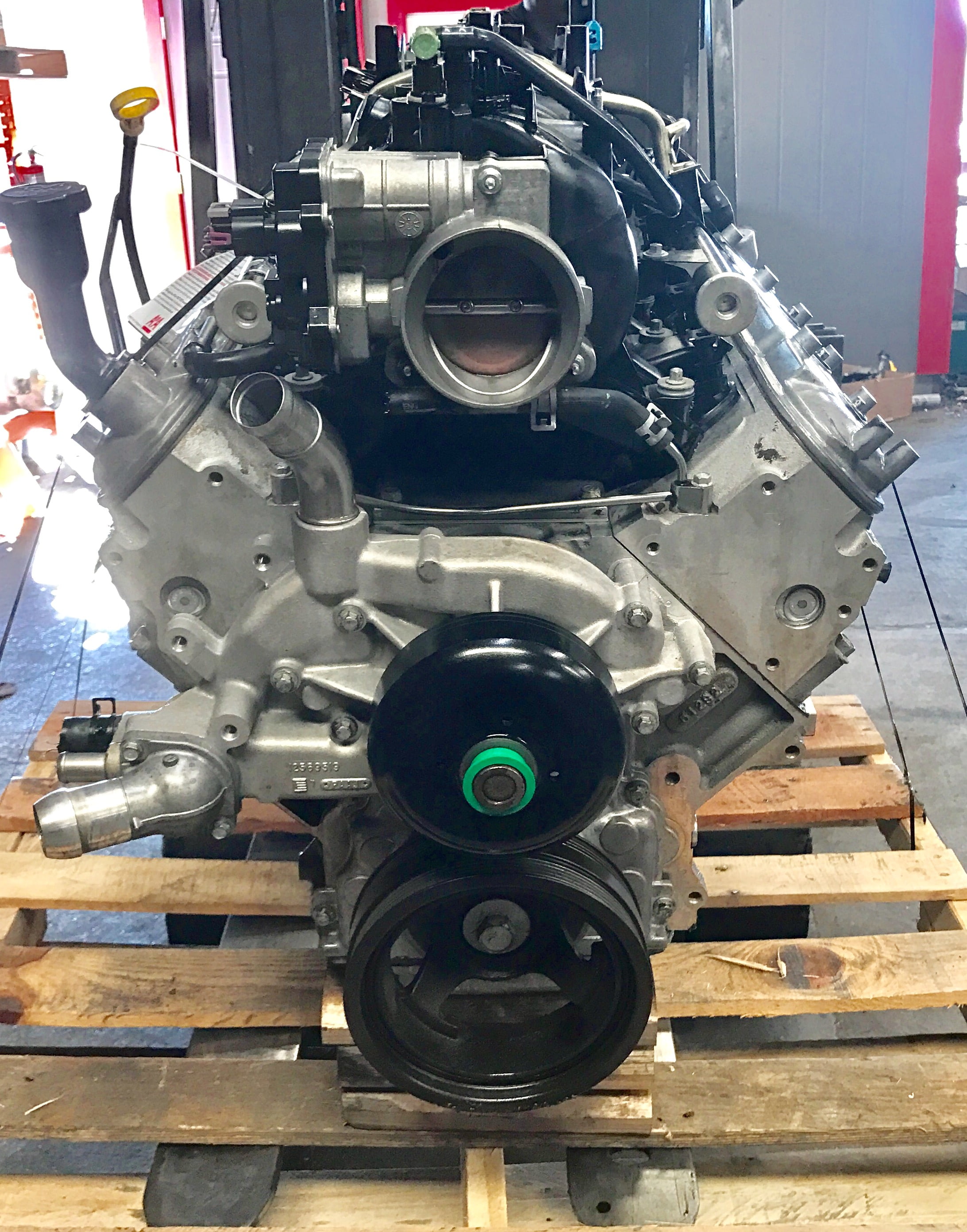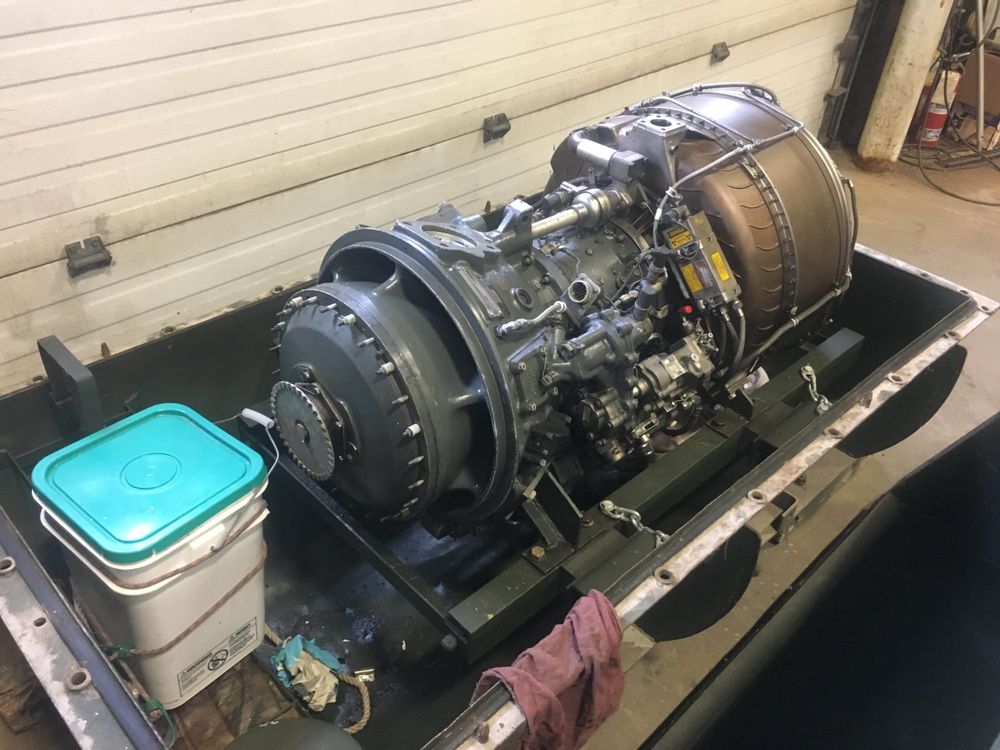Used 53 L Engine For Sale – In the realm of electronics, a quality product, such as a high-end camera or a premium laptop, can perform reliably for years, often outlasting cheaper alternatives. For instance, businesses in industries such as technology, renewable energy, or e-commerce may attract more buyers due to their perceived growth potential. It may have been passed down, carefully preserved, and lovingly maintained. For example, someone might be able to purchase a used smartphone or laptop with the same features and specifications as a brand-new model, but at a significantly reduced price. Influencers sell their attention, their opinions, their lives — all of it has become a form of commerce. While buying and selling second-hand items can come with its challenges, the rewards—both financially and environmentally—make it a worthwhile pursuit for many people. In the end, the phrase “for sale” is about more than just the exchange of money for goods or services. A car might be sold because it no longer serves the needs of its owner, or perhaps the owner is simply ready for a change. Many people find that buying second-hand furniture allows them to acquire high-quality pieces that are built to last, often with a level of craftsmanship that is hard to find in mass-produced furniture. The durability and longevity of these products mean they don’t need to be replaced as frequently, reducing the need for constant purchases and ultimately saving money in the process. They remind us that, despite living in a world where everything is for sale, there are some things that remain priceless. Second-hand items are typically sold for a fraction of their original price, making them an attractive option for individuals on a budget. In recent years, the market for businesses for sale has been affected by several global and local economic factors. For the buyer, a car offers freedom, mobility, and a chance to create their own story on the road. These items are often crafted with a sense of purpose, where every stitch, joint, and component is carefully considered to create a product that not only functions well but looks beautiful in the process. In a world where everything is for sale, it’s easy for the vulnerable and the marginalized to be taken advantage of. Due diligence is a crucial part of the process, where the buyer investigates the business thoroughly to ensure that there are no hidden liabilities, potential risks, or operational inefficiencies. Workers are often paid meager wages for their labor, while corporations amass wealth. Buying second-hand goods has numerous advantages. The practice of buying and selling second-hand items has been around for centuries, but in recent years, it has seen a resurgence.

Used Detroit diesel 353 Diesel Engine
90 day warrantycompetitive pricingnationwide servicefast turnaround

Detroit 6V53 Series 53 Diesel Engine For Sale Opa Locka, FL 6V53
90 day warrantycompetitive pricingnationwide servicefast turnaround

2013 Chevy Silverado 5.3 Engine For Sale
90 day warrantycompetitive pricingnationwide servicefast turnaround

Detroit 6V53 Series 53 Diesel Engine For Sale Opa Locka, FL 6V53
90 day warrantycompetitive pricingnationwide servicefast turnaround

Salvage RV Parts 2002 CHEVROLET 5.3 LITER ENGINE AND TRANSMISSION FOR
90 day warrantycompetitive pricingnationwide servicefast turnaround

1978 Detroit Diesel 6V53 Series 53 Diesel Engine 210 HP, 5.2L, Model
90 day warrantycompetitive pricingnationwide servicefast turnaround

Salvage RV Parts 2002 CHEVROLET 5.3 LITER ENGINE AND TRANSMISSION FOR
90 day warrantycompetitive pricingnationwide servicefast turnaround

Detroit Diesel 6V53 Non Turbo Engine Complete Good Running A+ ESN 6D
90 day warrantycompetitive pricingnationwide servicefast turnaround

Detroit Diesel 6V53 RA, 5.3L Engine Short Block Used 6D159670
90 day warrantycompetitive pricingnationwide servicefast turnaround

Textron T53 L13BA Gas Turbine Engines
90 day warrantycompetitive pricingnationwide servicefast turnaround
By choosing second-hand goods, consumers can help reduce waste, conserve resources, and lessen the demand for new production. From the most trivial items in a dollar store to the most precious works of art in a museum, everything can be assigned a price. Art, music, literature — these expressions of human creativity and emotion are not always bound by the rules of commerce. This sense of connection can also extend to the broader culture of quality goods, where consumers and creators share a commitment to excellence and a desire to preserve the craft and tradition behind these products. For sale, it seems like a simple phrase, yet it carries with it an array of possibilities, emotions, and decisions that can shape someone’s life. These goods, once owned and used by someone else, offer a unique opportunity for both sellers and buyers to exchange items that might otherwise go unused. Quality goods transcend trends and fleeting fads. Similarly, during periods of economic growth, there may be a greater willingness to spend on luxury second-hand items, such as high-end fashion or collectible items. For the seller, there is the risk that they may not be able to find a buyer who is willing to pay the desired price, or that the sale may not go through as planned. The internet, for example, has created a space where anyone can buy or sell almost anything, from physical products to intangible services. This has opened up new possibilities for people to find exactly what they’re looking for, whether it’s a specific brand of furniture or a limited edition item that was once sold out. Whether it’s the affordability, the environmental impact, or the opportunity to find unique items, second-hand goods provide an alternative to traditional retail shopping that is both practical and sustainable. Buying second-hand goods has numerous advantages. In recent years, the market for businesses for sale has been affected by several global and local economic factors. The online second-hand market has also made it possible for people to buy and sell niche items that may not be available in local stores. Online platforms like Etsy, for example, have given artisans a global audience for their high-quality handmade goods. For those on the outside looking in, the idea of acquiring an existing business might seem both enticing and overwhelming. For those who enjoy the tactile experience of shopping and the sense of discovery that comes with it, thrift stores offer a personal and immersive way to shop for second-hand items. In some cases, buyers may also acquire businesses with existing intellectual property, such as patents, trademarks, or proprietary technologies, which can offer a competitive edge in the market. For sellers, the market for second-hand goods offers an opportunity to declutter their homes and make some extra money.
When everything becomes a transaction, we risk losing sight of what truly matters. People place their belongings for sale for many reasons. As more people embrace the idea that everything has value, second-hand goods will continue to be a central part of the way
Quality goods for sale have always held a special place in markets around the world, captivating consumers with their promise of durability, performance, and timeless appeal. The rise of online platforms has transformed the way second-hand goods are bought and sold. Vintage items, antiques, and pre-loved goods often carry stories and histories that new products simply cannot replicate. But what about the intangible things? Can memories be bought? Can feelings, emotions, or connections be traded? In a sense, many people would argue that in today’s world, even the intangible is up for grabs. In many cases, sellers may work with business brokers, financial advisors, or accountants to help value the business and identify potential buyers. This practice is an essential aspect of sustainability, as it helps conserve resources and reduces the amount of waste sent to landfills. Are there things that should be kept beyond the realm of trade? Or has the marketplace — with its insatiable demand and promise of exchange — seeped into every facet of our being?
If everything is for sale, then the concept of value itself becomes fluid, subjective, and often manipulated. The adage “you get what you pay for” rings especially true in the realm of quality goods. In fact, there’s been a resurgence of interest in artisanal, locally-made products, especially in industries like fashion, home decor, and food. Quality goods for sale are not just limited to luxury items or high-end brands. A business for sale is not always as it appears on the surface, and the buyer must examine the company’s financial statements, contracts, debts, and even its customer relationships before deciding whether to proceed with the transaction. There’s something deeply satisfying about using an item that was crafted with skill and attention. Thrift stores and consignment shops often work with charitable organizations or local non-profits, using the proceeds from sales to support various causes. Due diligence is a crucial part of the process, where the buyer investigates the business thoroughly to ensure that there are no hidden liabilities, potential risks, or operational inefficiencies. For sellers, this creates an opportunity to declutter their homes and make some extra money, while buyers have access to a vast marketplace of affordable, unique, and sustainable products. A house can be bought, a car can be sold, a watch can be pawned. In the realm of real estate, for instance, selling a house is often an emotional and logistical challenge. But in the end, whether it’s an item or an individual, the process of being “for sale” is a negotiation of worth, a moment of exchange.